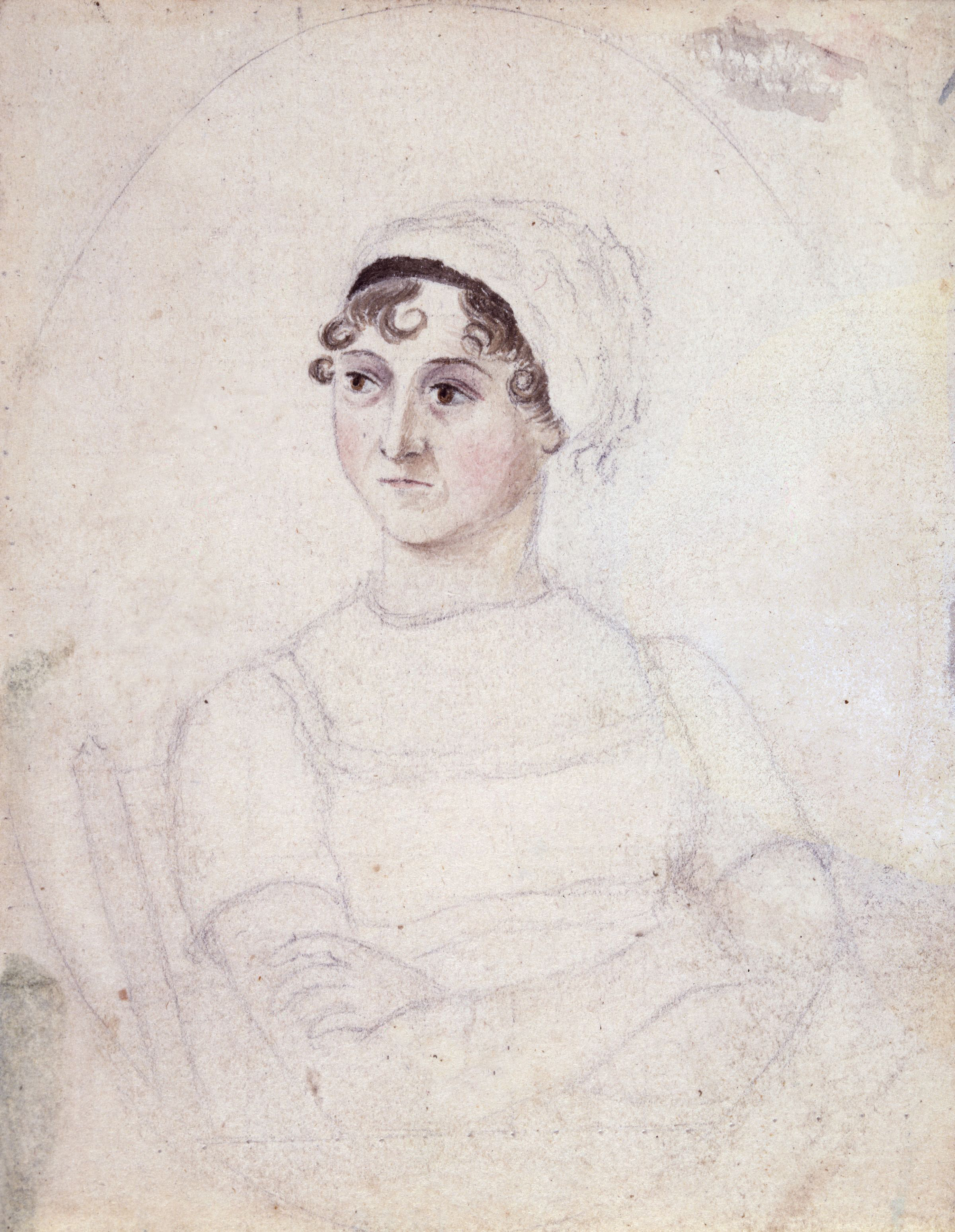I decided to do something a little different this year and start out my annual Jane Austen re-read with Emma, which is never in the running for my favorite Austen novel and sometimes finds itself in the position of least favored. It’s been several years since I last read it, and I don’t think I have ever done it justice, as a reader.
Let me see if I can explain. I read Pride and Prejudice first, and then I spent so much time watching the 1995 BBC adaptation that it supplanted the original; when I read the book, I was most often struck by its deviation from the adaptation. Sometimes I took the trouble to read the book carefully and critically, to consider new (to me) ideas and challenge my assumptions about the book. Sometimes I read it for the comfort of a familiar and amusing story. But no matter what I sought from the reading of it, I have always approached P&P with respect. I know it’s brilliant, and I know that after 20 or so readings (and God knows how many viewings of the various adaptations) that I have just scratched the surface of all the truth and wisdom Austen crammed into it.
Emma, on the other hand, I have never — ’till now — bothered to read carefully and critically, nor have I ever found it particularly comfortable (or comforting). When I read it, I did because I thought I should, not because I particularly wanted to or anticipated any benefit from it. I was first introduced to its story through the movie adaptation Clueless, and I very incorrectly assumed that the original was a bit frivolous. Emma is such a difficult character to like, and there are so many troubling aspects to the story (Mr. Knightley’s being vaguely creepy, perhaps, or Emma’s and Harriet’s friendship being so unequal — and frankly awful — or the entire Jane Fairfax/Frank Churchill comedy of errors story seeming like such an interruption to the main story line), that I honestly could not be bothered to take it seriously. Emma is a fun, light, and entertaining comedy of manners and nothing more, I thought.
I was wrong.
Now about halfway through the book, I am not finding anything particularly fun and light about it. In fact, the whole thing seems overshadowed by impending doom. The action opens with loss — the loss of Miss Taylor — and with Emma seeing her future stretching out before her, bleak and lonely. Emma, in desperation, seeks an unequal friendship with young, naive Harriet Smith, whom Emma pretty much captures and isolates like a pet, removing her from the company of good people among whom Harriet could have a happy and prosperous life and setting her on a path that cannot end well.
Later in the story, when Mrs. Bates, Miss Bates and Jane Fairfax are introduced, the story grows darker still. Miss Bates is a natural foil for Emma, except that Miss Bates is poor where Emma is rich, and Miss Bates loves and approves of everybody (while viewing herself in a somewhat self-deprecating sort of way) where Emma is contemptuous and critical of everyone, including herself, at times (moreover, most of Emma’s criticisms of others apply directly to her, so I read her criticism of the neighborhood as an extension of her dislike of herself.). Take away Emma’s wealth and shift her twenty years into the future and she’s actually in a much worse position than Miss Bates, who is at least harmless and well liked…
And then there’s Jane Fairfax, whom Emma avoids and abuses simply because Jane, out of everybody in the neighborhood, best demonstrates the sort of young woman Emma knows she ought to be but isn’t. When Jane Fairfax is around, Emma cannot escape from her self-disgust (though she does try to take Jane Fairfax down a peg or two by inventing the notion that Jane, a much prettier woman than Miss Campbell, the girl with whom she was brought up, either supplanted Miss Campbell in the affections of her husband or nursed an unrequited affection for him; Emma then shares this invented notion with Frank Churchill, which action is one of the most ridiculous and dangerous things Emma does in the entire book.). Moreover, Emma fears not only that Jane Fairfax acknowledges Emma’s deficiencies of character and application but also that other worthy people (Mr. Knightley and Miss Taylor/Mrs. Weston) do as well. Honestly, none of that is fun and light.
Jane Austen does not have to be sparkling and enjoyable in order to be interesting, however, and I am finding in this reading of Emma that it might be the most interesting (read: thought-provoking) of all of Austen’s novels. Here is a story about a woman who is allowed to be perfectly awful, whose sterling qualities are difficult to find amid all the jealousies and pettiness of her youth and pride. But I honestly don’t believe that Emma is in any way more awful than I was at 20. Emma isn’t nice, kind, or pleasant; she doesn’t inspire pity (she is, after all, “handsome, clever, and rich.”); and she doesn’t actually suffer all that much on her road to love. Given all of this, it seems typical for readers to dislike Emma just as much as she dislikes herself; however, I find myself, on this read-through, at least, giving Emma (and, through her, myself) the permission to be unpleasant. We’ll see how that continues as I progress to the novel’s second half.
Let’s discuss! From the conversations I’ve had with some of you on Twitter, I don’t think I’m alone in my habitual approach to Emma. What do you think Austen was about with this book?
(I’m planning another post on some of the perviness to be found in Emma, by the way.)





